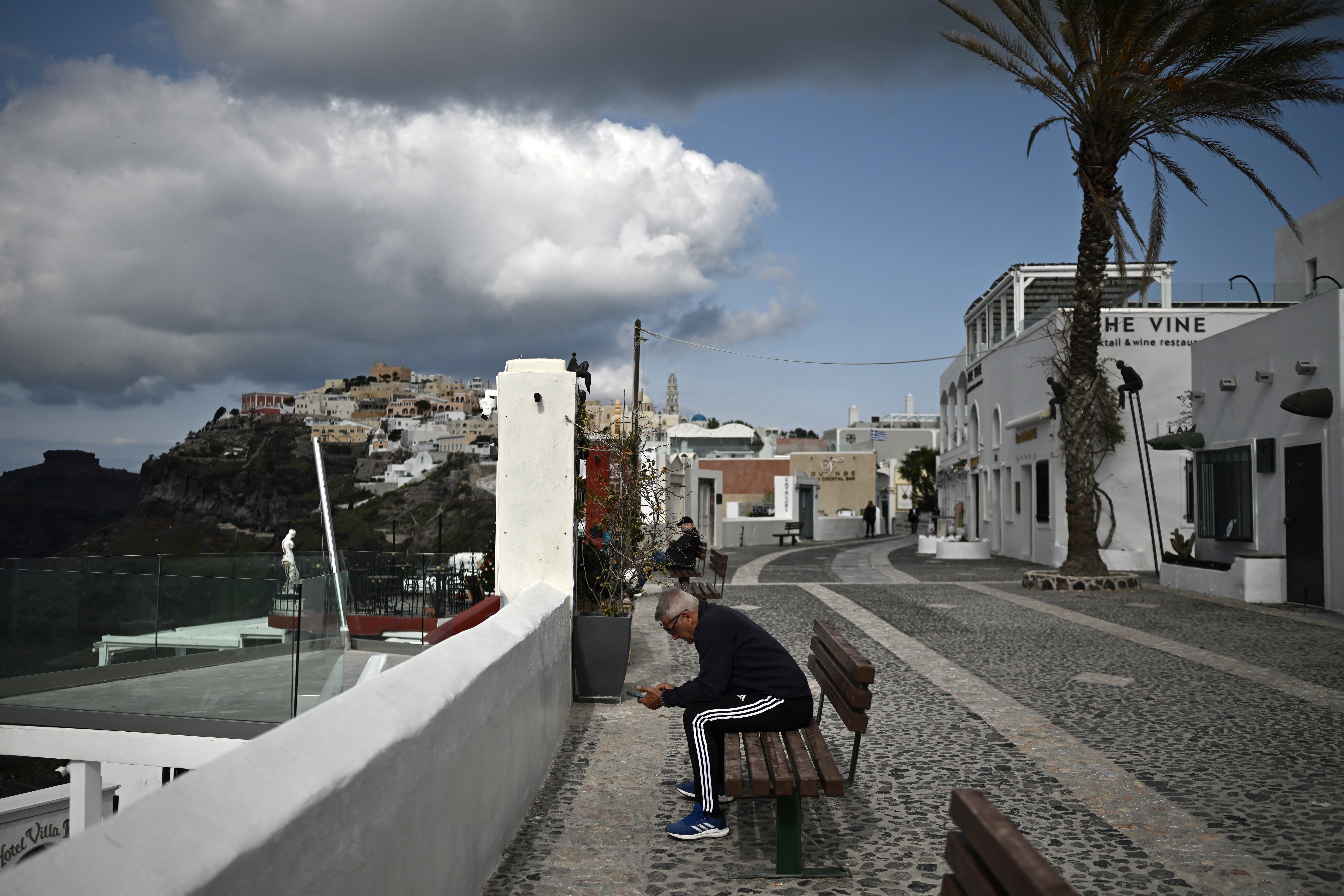A state of emergency has been declared on a second Greek island as a series of earthquakes continued to rattle the south-eastern Aegean Sea region.
The emergency measure announced, on Wednesday, on the island of Amorgos follows a similar decision for nearby Santorini on 7 February.
It comes after thousands of unusual tremors were registered in an undersea area near the two islands, as well as the islands of Ios and Anafi – all popular tourist destinations.
Scientists had expressed hope the seismic swarm could be easing up, but a string of earthquakes around magnitude 5 has renewed concern. Seismologists have also noted that the epicentre of the earthquakes is steadily drifting northward in the direction of Amorgos.
The emergency declaration will facilitate rapid deployment of resources and emergency services. The region has already seen a significant mobilisation of fire departments, police, coast guard, and armed forces mostly on Santorini where thousands of residents and seasonal workers have left the island.

The picturesque whitewashed villages of Santorini, a tourist hub usually teeming with visitors even in the off season, have been rendered ghost towns.
Shops and restaurants have been boarded up, schools closed and towns have nearly emptied of all their residents after the incessant tremors bred fears of a looming natural disaster.
Late on Monday, Santorini was struck with its strongest earthquake yet when a 5.3-magnitude quake rattled the island - which took its current geographical shape after suffering one of the worst volcanic eruptions in human history nearly four millennia ago.
Those in the travel industry in the UK said the quakes had not affected interest in the Greek islands - though interest in Santorini had been waning before the quakes.
Santorini’s tourist season traditionally begins at Easter, with very few British visitors currently on the island.
Richard Slater, director of Henbury Travel in Macclesfield, said: “Greece has always been a key part of our bookings, and like many, we were saddened to hear about the recent tremors affecting the island. Our thoughts are with the residents and hoteliers as they navigate these challenging times.
“Of the few clients already booked for the upcoming season, only one couple reached out with concerns. However, they expressed confidence in having booked through us, knowing that they are fully protected. Interestingly, we’ve noticed a slight decline in interest for Santorini over the past year.
“Santorini, traditionally a ‘fly and flop’ destination in the spring and autumn months, has seen some caution among travellers in peak summer. The influx of cruise ships, especially on days with multiple arrivals, has led many to seek quieter destinations.”
Overall, about 12,000 earthquakes with magnitudes greater than 1 have been registered since 26 January, the University of Athens’ crisis management committee said.
Although Greece lies in a highly seismically active part of the world and earthquakes are frequent, it is very rare for any part of the country to experience such an intense barrage of earthquakes for such an extended period.







